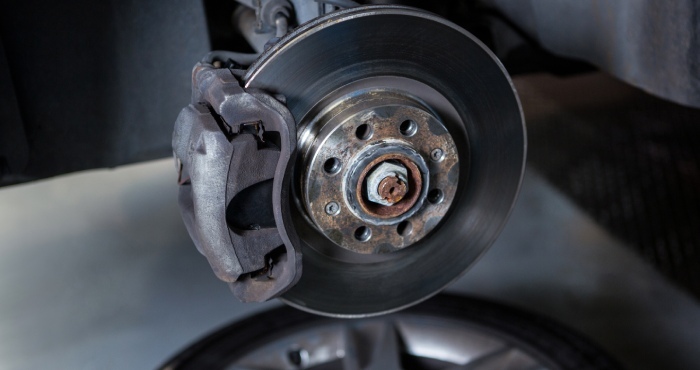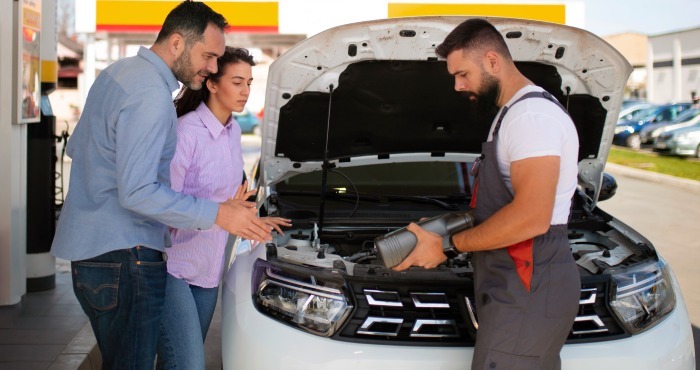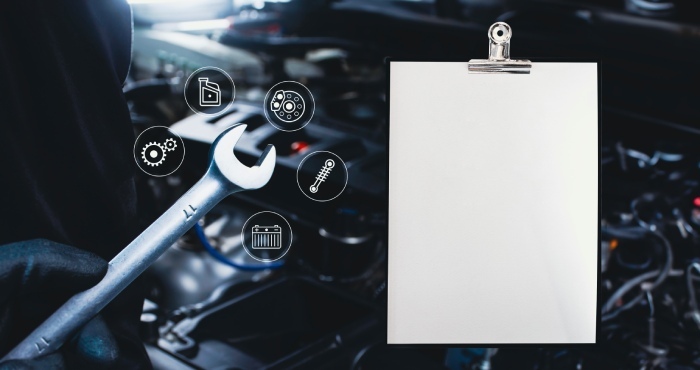Understanding Your Rights Under the California Lemon Law
Safety and dependability are crucial factors to think about when buying or leasing a car. Despite ongoing technological improvements, issues can still occur, creating dangers for both drivers and their passengers. If you believe your vehicle might be a lemon, the California Lemon Law provides consumer safeguards. The knowledgeable professionals at McMillan Law Group are ready to assist you in navigating this situation.
We offer a complimentary case assessment to evaluate your circumstances and assist you in safeguarding your rights.
What is the California Lemon Law?
The Song-Beverly Consumer Warranty Act, commonly referred to as the California Lemon Law, provides legal options for buyers or lessees of new or certified pre-owned cars that have major defects. For a defect to qualify under this law, it must considerably affect the vehicle’s usability, worth, or safety, and the issue should persist despite a reasonable number of repair attempts made by the manufacturer or their authorized service centers.
McMillan Law Group focuses on assisting consumers in utilizing the Lemon Law, safeguarding their investments, and preventing them from being burdened with a vehicle that repeatedly falls short of quality expectations.
What Types of Problems Are Covered by the Lemon Law?
The California Lemon Law Lawyer aims to tackle serious and persistent problems that impact a vehicle’s performance, safety, or worth. Although not every defect is eligible for protection under this law, there are specific issues that are typically included.
Below are several common issues that are covered by California’s Lemon Law:
- Issues with airbags: Instances where airbags do not deploy when needed or activate unexpectedly.
- Mold in the air conditioning system: Accumulation of mold that deteriorates the air quality inside your car.
- Failures in the anti-lock braking system (ABS): Problems with the anti-lock braking system that affect braking efficiency.
- Structural concerns: Problems that compromise the overall integrity of the vehicle’s body.
- Brake pedal issues: Pedals that do not function properly or fail to engage as intended.
- Malfunctioning seat belts: Defective seat belts that fail to secure passengers adequately.
- Electrical system failures: Issues within the vehicle’s electrical components, impacting lights and dashboard displays.
- Engine control and cruise control failures: Complications that hinder the proper operation of engine management or cruise control systems.
- Fuel injection system leaks: Fuel escaping from the system creates safety risks.
- Defective fuel lines: Issues with fuel lines that heighten the likelihood of vehicle fires.
- Paint issues: Premature peeling, bubbling, or fading of the vehicle’s paint.
- Loss of power steering: The power steering system failed, making it difficult to maneuver the vehicle.
- Early brake rotor wear: Brakes or rotors wear out sooner than expected, compromising braking performance.
- Seat belt malfunctions: Problems with seat belts, such as faulty locking mechanisms.
- Steering drift: Misalignment or other factors causing the vehicle to stray off course unexpectedly.
- Engine stalling: Engines shutting down while driving, which can lead to significant safety concerns.
- Uncontrolled acceleration and surges: Unexpected increases in speed while driving that may result in accidents.
- Unregulated acceleration: Comparable to abrupt increases in speed, where the vehicle accelerates on its own without any action from the driver, which could lead to hazardous scenarios.
Do All Defects Qualify for Lemon Law Protection?
The California Lemon Law aims to safeguard consumers against faulty vehicles, but not all defects are eligible for protection. To qualify, a defect must significantly affect the vehicle’s usability, worth, or safety. Additionally, the manufacturer or dealer needs to be provided with a fair chance to resolve the issue. This entails that they should make several attempts to repair the defect without achieving a successful outcome.
Moreover, the issue needs to arise within a designated period or mileage restriction following the acquisition or leasing of the vehicle. These parameters are in place to allow consumers to tackle issues promptly and hold manufacturers responsible if repairs consistently do not succeed.
When Car Manufacturers Cut Corners, We Hold Them Accountable
Manufacturers must create vehicles that adhere to top safety and performance criteria. Nonetheless, there are occasions when they may take shortcuts, ignore important aspects, or inadequately resolve existing issues. Such carelessness can result in inconveniences, expensive repairs, or potentially hazardous accidents that could jeopardize lives.
At McMillan Law Group, our commitment lies in ensuring that automobile manufacturers are responsible for their carelessness. We put in relentless effort to protect consumers from the dangers and financial strains caused by defective vehicles.
If you’ve bought or leased a faulty vehicle, it’s important to act quickly and obtain legal help. Our attorneys specializing in lemon law possess significant expertise in these matters and can assist you throughout the procedure to safeguard your rights.
Why Choose McMillan Law Group?
Established in 1987, McMillan Law Group has emerged as a prominent champion for consumer rights throughout California. Specializing solely in lemon law cases, our firm has developed exceptional knowledge and skills in this intricate legal field. Throughout the years, we have assisted countless clients in maneuvering through the lemon law process, securing either financial compensation or replacement vehicles from manufacturers who did not fulfill their commitments.
Below are several reasons to have confidence in our handling of your lemon law case:
- Years of expertise: With more than 35 years in California dealing with lemon law cases, we have a proven track record of success.
- In-depth knowledge: Our singular emphasis on lemon law equips us with the insights needed to manage these cases both efficiently and effectively.
- Individualized support: We prioritize each client, providing the attention and care you need to feel supported throughout your legal journey.
- No initial costs: Our services operate on a contingency fee structure, meaning you only pay if we achieve a favorable outcome for you.
How Does the Lemon Law Process Work?
The lemon law process may seem daunting at first, but having the right legal representation can simplify the journey to a resolution. Below is a brief outline of how this process unfolds when you partner with McMillan Law Group:
Step 1: Free Case Evaluation
To initiate the process of addressing a lemon law issue, you can start with a complimentary case assessment conducted by one of our knowledgeable attorneys. In this meeting, we will examine your vehicle’s history and any repair efforts made, determining if the issues qualify for lemon law coverage.
Step 2: Determining the Manufacturer’s Liability
After we establish that your case is valid, we will start looking into the level of responsibility held by the manufacturer. This process includes examining repair logs, service records, and any correspondence you’ve had with either the dealership or the manufacturer.
We will also take into account elements like the frequency of repair attempts, the seriousness of the issue, and when the problem arose.
Step 3: Demand for Compensation or Vehicle Replacement
Once liability has been determined, we will present an official request to the manufacturer for you. This request usually aims for one of two results:
- Replacement vehicle: The manufacturer might provide a similar vehicle that adheres to the required safety and performance criteria.
- Reimbursement or compensation: In certain situations, the manufacturer could consent to refund the cost of the vehicle or provide compensation for any financial losses you have suffered as a result of the defect.
Step 4: Negotiation and Resolution
After you submit your request, we will move into the negotiation stage, aiming to resolve your case promptly. While many lemon law cases are typically settled through negotiation, we are ready to escalate the matter to court if the manufacturer is not open to reaching an agreement.
We aim to achieve an equitable outcome that holds the manufacturer responsible, safeguards your rights, and maintains your financial security.
What Should You Do if You Suspect Your Car is a Lemon?
If you think your vehicle might be defective, it’s crucial to act promptly. Below are the steps you need to take to safeguard your rights under California’s Lemon Law:
- Maintain thorough documentation: Retain all records associated with your vehicle, such as repair invoices, maintenance logs, and any correspondence with the dealership or manufacturer.
- Persist in notifying about problems: Continue to inform the manufacturer or dealership about any issues, regardless of whether past repair efforts have failed. Each report contributes to reinforcing your lemon law claim.
- Seek guidance from a lemon law lawyer: Contact a knowledgeable California lemon law attorney promptly to evaluate your choices. At McMillan Law Group, we provide complimentary consultations, allowing you to obtain essential information without any monetary obligation. Reach out to us at +1 619-795-9430 or get in touch today for a complimentary consultation.
Why Acting Quickly is Critical
Lemon law claims come with specific deadlines that must be adhered to. The issue with the vehicle needs to arise within a designated period or mileage threshold, and postponing your response may diminish your likelihood of achieving a favorable outcome. Prompt action helps us maintain crucial evidence, including repair records and correspondence with the manufacturer, while also safeguarding your rights.








